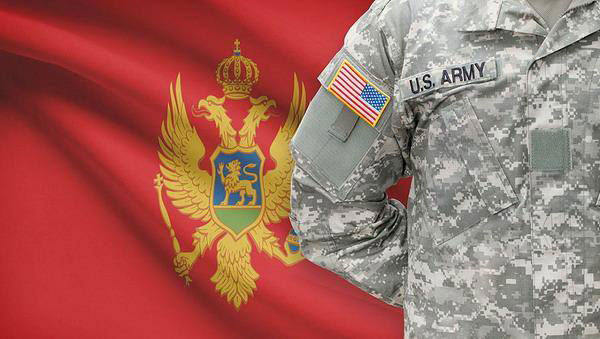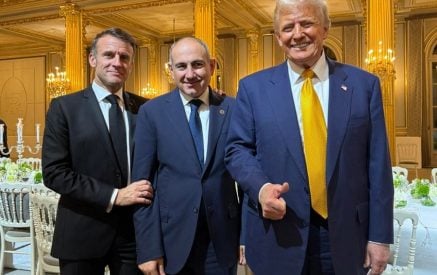It turns out that not only the post Soviet countries “must not” integrate into NATO and the European Union but also the Balkan countries. And it also turns out that Moscow for that “must not” is ready to take such active steps that are out of the limits of legality, and the physical security of some officials of the Balkan countries can just be endangered. On October 16 of the current year important parliamentary elections took place in Montenegro that followed the membership of that country to NATO. There is nothing abnormal that the newly independent European country wants to join NATO – the most successful and the most powerful alliance in the history, which has kept the peace in Europe since 1945 and does it where the 5th clause of the Treaty is in force. And on the same day in Montenegro the police made an announcement according to which a terroristic action in Podgorica was prevented in which Russian, Serb and Montenegrin extreme nationalists, who had got prepared in Serbia and were ready to enter the country, were involved. They had intended to kill Prime Minister Milo Đukanović and carry out a revolution preventing the country’s further integration into NATO and the EU. The people engaged in that diversionary terroristic action were detained in Serbia; they had on them 125 thousand Euros in cash and uniforms of police special forces of Montenegro.
It was not peaceful in Serbia either. Several days later an armory was found near the house of Aleksandar Vučić, Prime Minister of Serbia and supporter of the European path; the trace of this also led to the same circles. The press also writes that substantial efforts are made to stir up instability and ethnic clashes in Macedonia and Bulgaria. The fact that imperial Russia has unconcealed affection towards the Balkan Slavic “brothers” is known from the 19th century when the Balkan people in the conditions of the European cynic “realpolitik” and apathy, and in the best case in the conditions of compassion, were fighting against the Ottoman humiliating yoke. And the Russian support, especially when it was accompanied with the rhetoric about the Slavic and Orthodox solidarity and unity of, was greatly encouraging them. Numerous streets and squares are named after Russian generals, colonels, captains and different officials in Sofia, the capital of Bulgaria. However, the very Bulgaria was the first to “say goodbye” to their “brothers”, who were tying savage manners of imperial turnkey on the newly independent country, and welcome the German royal to reign. But it is an old story. We speak about today’s Montenegro, which like Serbia has always been very friendly towards Russia; the colors of the Serbian flag is the same as that of the Russian, and the blazon of Montenegro is the same double-headed eagle.
But Moscow has never been sentimental. It has always been interested in more serious affairs than the future of the “brothers”. Eventually, the First World War started from the Balkans in consequence of which both Russian and Ottoman empires appeared in the dump of the history. It is also an old story… And now to explode the “peritoneum” of Europe, to bring the Balkans to the regime of “powder keg”, to act as a “legitimate alternative” to united Europe- this is the incomplete list of all that interest the Russians. Of course, the talks and statements about inadmissibility of intervening in the internal affairs of sovereign countries after the incidents in Georgia and Ukraine can only cause contemptuous grin in Moscow. And on the question whether Moscow is interested in what kind of future it promises the Balkan people, they will die laughing in Moscow. If it interested or interest them then only as a cannon fodder or “useful idiot”.
In the end, the Russian intervention had inglorious epilogue; the diversion failed , a part of the diversionists were detained, the rest are in escape, and the persecutor’s office of Montenegro has incriminated the Russian nationalists too, the hypothesis on their connection with the Russian state is still to be verified or falsified. What happened showed that in Montenegro as well as in Serbia the local “October 27”, “September 3”, and Balkan “Donbas” were prevented. Thus, the high-ranking officials of the country were saved from the physical retribution, and the course of the European integration was maintained, the inner instability was completely hampered. Prime Minster of Montenegro Milo Đukanović announced a day before the elections that it would show whether the country would become a member of the EU or a Russian colony. Now it is already known that pro-Russian forces suffered a crushing defeat…
Read also
What happened shows also that the societies of the Balkan countries are already mature and in main got released from the nationalistic romanticism of the 19th century and from the ideological inheritance of the Balkan wars of the 20th century, they look to the future.
But in Armenia Russia is too much today. In Armenia also the Russian affection is in favor of oligarchy, corrupted officials, demagogues, extreme nationalists or those who present themselves such, and this affection is mutual. Military station, control in the airport, border-guards, gazprom- rosnefts, aggressive propaganda – all these are here, and they are very deep and very much to the degree of desperation. But the Armenians are neither Orthodox, nor Slavic. If many forgot (and some did not spare efforts to bury in oblivion) the Russian “brotherhood” after the Operation “Koltso” (Operation Ring) and the mass deportations of the Armenians, the capture of Martakert and Shahumyan and passing them to Azerbaijan, then after the 4-day war many recalled and understood many things. But all these will vanish in one day and only unique “useful idiots” will be found among the Armenians who willprevent it. And today we just be ready for that tomorrow’s “brotherhood”, not the new “blessed hour” and not to forget the Balkan lessons. May God save us from such “brotherhood”, and we ourselves will save us from the enemies as the Balkan people and the countries did.
RUBEN MEHRABYAN
“Aravot”























































